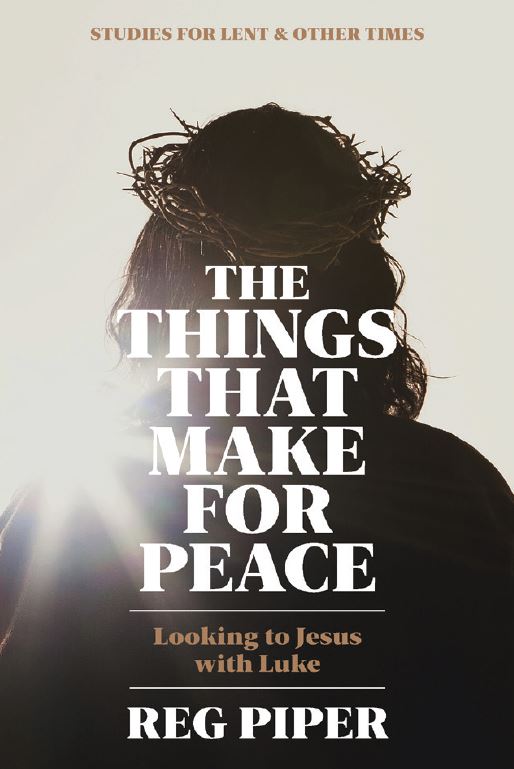
The big problem in Christian marriages
... that can become our greatest gospel witness.
I was once told that one of the greatest gifts a couple can give their children is a strong and stable marriage. But I think there’s also something distinctive that Christian marriages offer our children—and it starts with recognising our biggest problem.
When my husband Ed and I were asked to give a seminar about marriage together, we read a number of secular books in preparation. There were plenty of gold nuggets of advice in them and some revealing insights into what makes us tick in marriage. I learnt much about communication, emotional tone and maintaining a good connection. But the more I read, the more aware I became of a glaring gap in each of these books. The reality that I’ve observed is that no matter how well we communicate, or how well we seek to foster positive interactions or stay emotionally connected, our marriages are often not the ‘happily ever after’ we thought we were in for. There is a big problem in our marriages. In fact, there are two.
The problems, of course, are that I’m a sinner and my spouse is a sinner too. And we live in a sinful, fallen world. But I want to suggest that knowing our biggest problem is actually one of our greatest benefits. In the gospel, we have a framework for understanding our marriages that actually gives us an enormous advantage over those who live without it. We enter marriage knowing that as much as this person loves me, they will also sin against me. And I will sin against them too.
Marriage is the closest human relationship you will have. It is described in Genesis as being united together in a new family unit as ‘one flesh’. But along with some of the greatest joys and intimacies comes the opportunity to hurt each other more than anyone else can hurt you. There is a perfect vulnerability portrayed in the first marriage before the fall: the man and his wife were ‘both naked, and they felt no shame’ (Genesis 2:25). But the other side of the Fall, this same vulnerability has a sting. The one who knows you best has the power to hurt you the most.
The good news of the gospel—that sinners can be forgiven and redeemed by the death and resurrection of our Lord Jesus Christ—will need to transform our marriages as much as any part of our lives. Marriage will clearly show our need for the gospel as we encounter our own sinfulness, revealed in all its ugliness, through sharing daily life with another. Marriage is also the place we will most need to extend the gospel of grace to a fellow sinner.
This means that ‘sorry’ will need to be one of the most common words in marriage, and so will ‘I forgive you’. Grace is essential. We will sin against each other, and we will need to truly forgive each other. Where do we go to find this grace? It’s at the cross, where he who committed no sin loved us so much that he bore the punishment for ours. A parable I find constantly challenging is that of the unmerciful servant in Matthew 18:21–35. It reminds us of how great a debt we ourselves have been forgiven, and puts into perspective anything we might be called upon to forgive.
A lack of forgiveness is toxic to our marriages. Love ‘keeps no record of wrongs’ (1 Corinthians 13:5). If we keep a mental list of all the times our spouse has wronged us and pull it out each time we argue, we haven’t genuinely forgiven them. We are acting like the unmerciful servant, who was shown great mercy only to throw the one who owed him a small debt into prison.
In our marriage, Ed and I need to not stew on each other’s shortcomings, annoying habits and sins. For me to truly forgive Ed will mean that as I think about him, I won’t keep bringing to mind all the ways he has hurt or disappointed me. I won’t rehearse them to myself constantly, replaying a ‘greatest hits’ of things he did wrong. Instead, I want to try and approach my marriage with a grateful, forgiving heart and dwell on Ed’s many kindnesses, the things I love and appreciate about him and the love he has shown me.
It has helped us to keep in mind the idea that a marriage is not made up of grand gestures or special date nights and exciting holidays. It’s not like movie relationships with passionate kisses in the rain and dramatic declarations of love. Marriage is mostly made up of Tuesday nights watching Netflix in our PJs. Marriage is eating spaghetti bolognese for the 763rd time. Marriage is taking the rubbish out and doing the dishes and ironing the shirts. And it is grace in these little, everyday things that builds up over days and weeks and years to make a good, healthy marriage. It’s the cup of tea Ed makes me even when we are in the middle of a disagreement. It’s the smile and the kiss each time we part or are reunited. It’s Ed telling me the spaghetti bolognese tastes delicious, even on the 764th time. We are sinners, living in a sinful, fallen world. So, we need to forgive and be gracious to each other.
There is much wisdom we can glean from secular books on marriage, but we need to understand them in the framework of what the gospel tells us about ourselves. There will one day be a perfect marriage—the marriage described in Revelation 21 where God’s people are prepared as a bride and dwell with him forever. Until then, our imperfect marriages should be characterised by two sinners extending his grace to one another. Now that’s a great gospel witness for our children to see.
*Please note that the marriages described in this article are not those that are abusive in nature. Abuse in marriage is abhorrent and this is in no way a call for people to endure unsafe situations. If you need help please do call 1800RESPECT.*
This article originally appeared at Australian Church Record.
---
Jocelyn Loane is married to Ed, and together they have five children. They have been serving in full-time ministry in a variety of contexts since 2008. They are a part of Naremburn Cammeray Anglican Church.

The Things That Make For Peace
In The Things That Make For Peace, Reg Piper digs deeply into all 24 chapters of Luke’s Gospel, to reveal the purposeful journey Jesus undertook to complete his earthly mission.
For more articles from Growing Faith, subscribe to our monthly e-newsletter.
To hear about the latest books and resources from Youthworks Media, subscribe here.








